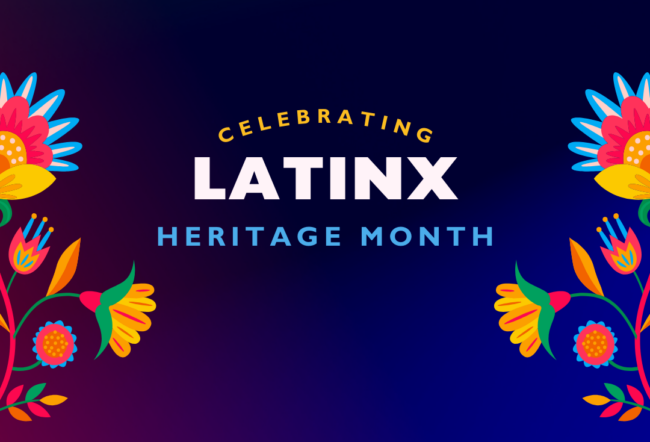The Lauder Commitment
The Lauder Institute has long regarded the study of language, culture, and historical context as foundational to our broader inquiry into the development of social, political, and economic institutions, including their influence on the social construction of gender, race, and identity, and the implications for stratification and inequality. The Lauder program addresses these phenomena in myriad ways, including through discussion of gender inequality, LGBTQ+, indigenous peoples, and differences in welfare and well-being. We are also deeply concerned with the social construction of race, the causes and consequences of racism, and anti-racist strategies for change.
In 2020, the Lauder Institute established a Taskforce focused on racism and racial injustice. The scope of the Taskforce has since expanded to include issues of social justice, equity, diversity, and inclusion. The Taskforce’s focus is aligned with the mission of the Institute to develop outstanding business leaders through the curriculum, co-curricular activities, access initiatives, and organizational practices.
Curricular Initiatives
The curricula of INTS Programs of Concentration (language, Africa, and Global) integrate issues related to race, social justice, diversity, and inclusion. Some examples of thematic units addressed in Program of Concentration classes include consideration of the role of slavery in fostering U.S. economic development; the challenge of multicultural diversity to national identity; migration and globalization; historical origins of cultural traditions routed in a racial subjugation; understanding contemporary protests; religious sectarianism and power sharing; issues of identity and belonging; the intersection of gender and race; redistributive politics; black entrepreneurship; and urban planning and racial politics. Faculty developed Lauder Regional Dialogues which have examined how globalization interacts with regional political and cultural systems to affect rising inequality.
In INTS Program of Concentration language courses, students work on a community outreach/cultural-research project. These group projects encourage students to use their target languages to understand local issues and cultures, and assist organizations where applicable. Some examples include helping the YMCA support new immigrant low-income families; understanding gentrification and its impact on the Puerto Rican community in Philadelphia; exploring the socio-cultural aspects of Frevo; and supporting digital literacy for Brazilian families in Philadelphia.
The Lauder Program also offers regular guest speakers and seminar discussions to help Lauder students become more effective and responsible global leaders. Sessions have centered on issues related to diversity, equity and inclusion, such as managing difficult conversations on race, advancing diversity and belonging in today’s organizations, and how to recognize unconscious bias.
Co-Curricular & Programming Initiatives
Lauder students regularly work to organize peer-facilitated discussions on a variety of topics related to race in the U.S, with discussions revolving around articles and videos that reflect the differences in experiences in the U.S.
Students also frequently participate in community service initiatives to learn about issues affecting local communities, especially immigrant communities where students are able to apply their language skills.
Several students participated in the creation of the Lauder Taskforce. On an ongoing basis, the Lauder Student Advisory Board includes a role dedicated to Community & Values which provides continuity from year-to-year to ensure activities and awareness related to issues of diversity and belonging.
Institutional Practices
The Lauder Institute prioritizes diversity in hiring and admissions for students, faculty and staff. Recent efforts include prioritizing outreach to historically black colleges and universities as well as to organizations dedicated to developing leadership pipeline initiatives. The Lauder Admissions Team, which includes a dedicated Diversity Admissions Officer, also hosts diversity chats and panel discussions with potential applicants. These efforts help to ensure access for a broader pool of candidates for the Lauder Program.
As part of the Taskforce initiative, Lauder Institute faculty and staff were able to participate in the same workshops and sessions created for students including: Managing Difficult Conversations, Advancing Diversity and Belonging in Organizations, and Unconscious Bias. The staff and faculty sub-group of the Taskforce continues to implement programming in similar areas. Members of the Taskforce also participate in other campus initiatives to promote and integrate best practices related to diversity, equity, inclusion and social justice.
Penn Initiatives
- Presidential Commission on Countering Hate and Building Community: https://president.upenn.edu/initiatives/presidential-commission
- Plan to Combat Antisemitism: https://antisemitism-action-plan.upenn.edu/
- Projects for Progress: https://sec.upenn.edu/p4p
- TAASS (Task Force on Support to Asian and Asian American Students and Scholars
Additional university resources can be found within the links below.
The Lauder Community
The Lauder Institute’s commitment to diversity, equity, and inclusion (DEI) is central to our mission to develop outstanding business leaders. Our community comes from numerous countries around the world, and our students, faculty, and staff bring a range of valuable backgrounds and perspectives to the program.
Student Clubs and Organizations
Lauder students are members and leaders of international, cultural, and affinity organizations across Wharton and Penn, such as:
African American MBA Association
Europa! (Wharton European Club)
Wharton Asian American Association of MBAs
Wharton Hispanic American MBA Association
Wharton International Cultural Show
Wharton Latin American Student Association
Many other graduate student groups are listed on the Graduate Student Groups webpage
Cultural and Advocacy Centers
Diversity and Inclusion at our Partnering Schools
Click the links below for detailed information on diversity and inclusion initiatives at our partnering Schools. Through the Lauder Institute’s joint-degree programs our students benefit from the broad work undertaken toward access, inclusion, and equity at SAS, Wharton, and Penn Law.







